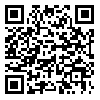Volume 3, Issue 1 (2023)
jpt 2023, 3(1): 15-32 |
Back to browse issues page
Download citation:
BibTeX | RIS | EndNote | Medlars | ProCite | Reference Manager | RefWorks
Send citation to:



BibTeX | RIS | EndNote | Medlars | ProCite | Reference Manager | RefWorks
Send citation to:
Mobini M. Samuel Clarke's Fitness Theory on Moral Value and a Brief Comparison of it with the Theory of Existential Fitness. jpt 2023; 3 (1) :15-32
URL: http://jpt.modares.ac.ir/article-34-65785-en.html
URL: http://jpt.modares.ac.ir/article-34-65785-en.html
Department for Philosophy of Ethics, Research Center for Islamic Philosophy and Theology, Islamic Sciences and Culture Academy
Abstract: (3227 Views)
Samuel Clark has a completely rationalist explanation of ethics and uses the concept of fitness a lot to explain his view; hence, his moral theory is known as the fitness theory. Clark considers moral values and obligations to be based on fitness relations and believes that the reason can understand self-evidently a large part of these relationships, and the other part can be obtained through rational arguments or revelation. Critics have found some ambiguities and defects in Clarke's fitness theory. In this article, Clarkeian fitness theory is examined according to the criticisms raised, and then in a brief comparison with the theory of existential fitness, it is shown that the theory of existential fitness does not have these ambiguities and defects.
Article Type: Original Research |
Subject:
Philosophy of Ethics (Analytical)
Received: 2022/12/3 | Accepted: 2023/02/4 | Published: 2023/03/10
Received: 2022/12/3 | Accepted: 2023/02/4 | Published: 2023/03/10
References
1. Clarke S (1704). A demonstration of the being and attributes of God. Cambridge: Cambridge University Press. [Link]
2. Clarke S (1705). A discourse concerning the unchangeable obligations of natural religion, and the truth and certainty of the Christian revelation. New York: Gale ECCO. [Link]
3. Hume D (1960). A treatise of human nature. Oxford: Clarendon Press. [Link]
4. Humphreys AR (1947). The eternal fitness of things: An aspect of eighteenth-century thought. The Modern Language Review. 42(2):188-198. [Link] [DOI:10.2307/3717223]
5. Hutcheson F (2002). An essay on the nature and conduct of the passions and affections, with illustrations on the moral sense. Indianapolis: The Liberty Fund. [Link]
6. Hutcheson F (2004). An inquiry into the original of our ideas of beauty and virtue (1726, 2004). Carmel: Liberty Fund. [Link]
7. Kelly E (2002). Moral agency and free choice: Clarke's unlikely success against Hume. Archiv für Geschichte der Philosophie. 84(3):297-318. [Link] [DOI:10.1515/agph.84.3.297]
8. Mesbah MT (1994). Moral philosophy lessons. Tehran: Ettelaat Publishing. [Link]
9. Mobini MA (2013). Fittingness and ontological consistency as fundamental value. NAQD VA NAZAR. 18(1):2-33. [Persian] [Link]
10. Mobini MA (2020). God, value, rationality: A step towards the theory of existential fitness about value. Qom: Islamic Sciences and Culture Academy. [Persian] [Link]
11. Mobini MA (2022). A typology of moral goodness in the theory of existential proportionality. Ethical Reflections. 3(3):7-26. [Persian] [Link]
12. Rawls J (2000). Lectures on the history of moral philosophy. Cambridge: Harvard University Press. [Link]
13. Sheridan P (2007). The metaphysical morality of francis hutcheson: A consideration of hutcheson's critique of moral fitness theory. Sophia. 46(3):263-275. [Link] [DOI:10.1007/s11841-007-0033-4]
14. Taleqani SA (2011). Examining David Hume's arguments against Samuel Clarke's moral rationalism. PAJOHESHHAYE AKHLAQI. 3:49-76. [Persian] [Link]
15. Yenter T (2022). Samuel Clarke. In: Jalobeanu D, Wolfe CT, editors. Encyclopedia of early modern philosophy and the sciences. New York: Springer. [Link]
16. Yenter T, Vailati E (2021). Samuel Clarke. Stanford: Stanford Encyclopedia of Philosophy. [Link]
| Rights and permissions | |
 |
This work is licensed under a Creative Commons Attribution-NonCommercial 4.0 International License. |







